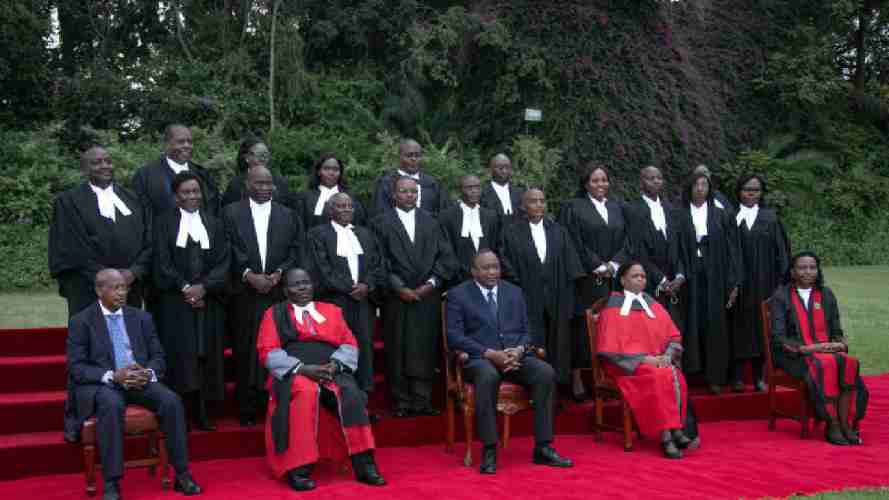×
The Standard e-Paper
Kenya’s Boldest Voice

President Uhuru Kenyatta and Chief Justice Martha Karambu Koome with Judges of the Environment and Land Court at State House, Nairobi during the swearing-in ceremony of recently gazetted Judges Nairobi on June 04, 2021. [PSCU, Standard]
Are we unduly judicialising politics? The Judiciary’s detractors believe it is willingly and robustly engaging in disputes best left to politics.